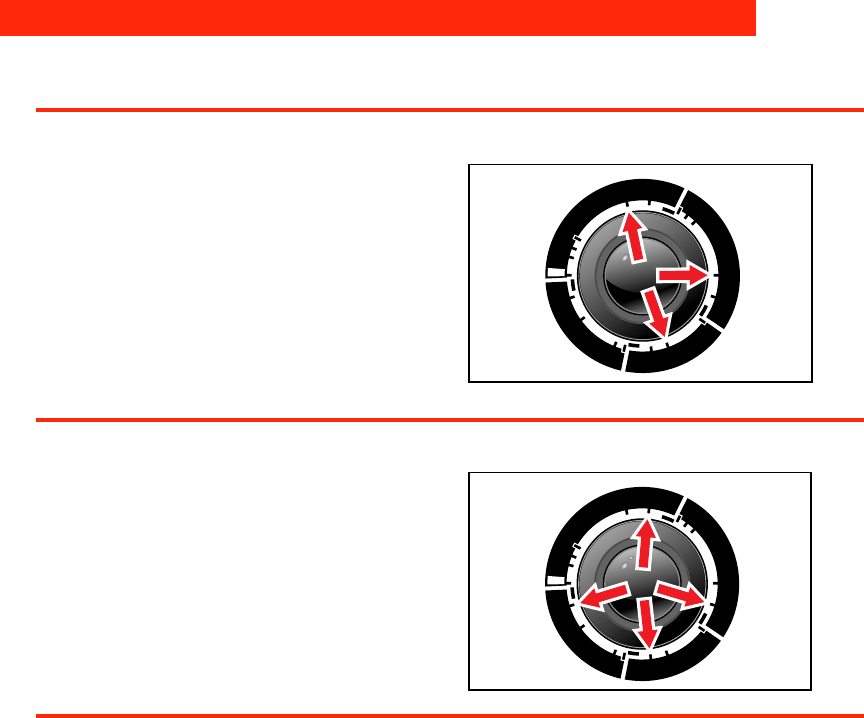
8
Using rinse and spin
When using extra detergent for heavily
soiled clothes, or washing special-care
items, you may find an extra rinse and spin
is needed.
1. For an additional rinse, push in the Cycle
Control Knob and turn clockwise to Rinse,
as illustrated.
2. Pull out the Cycle Control Knob. The
washer fills to selected load size,
agitates, drains, and spins.
Using drain and spin
A drain and spin may help shorten drying
times for some heavy fabrics or special-care
items by removing excess water.
1. Push in the Cycle Control Knob and turn
clockwise to Spin, as illustrated.
2. Pull out the Cycle Control Knob. The
washer drains, then spins.
Understanding normal washer sounds
Your new washer may make sounds that
your old one didn’t. Because the sounds are
unfamiliar, you may be concerned about
them. Don’t be; most of them are normal.
The following describes some of the
sounds you may hear and what causes
them.
During washing
When you select a small load size setting for
a small wash load, the water level in your
washer is lower. With this lower water level,
you may hear a clicking sound from the
upper portion of the agitator.
Regular
Heavy
4
20
10
10
14
6
Cool
Down
Pause
Pull Start
Push Stop
Regular
Light
6
18
Spin
Spin
Spin
Spin
Permanent
Press
Normal
Delicates
Soak
Pre-Wash
Super Wash
Off
Off
Off
Off
Rinse
Rinse
Rinse
Rinse
Rinse
Rinse
Regular
Heavy
4
20
10
10
14
6
Cool
Down
Pause
Pull Start
Push Stop
Regular
Light
6
18
Permanent
Press
Normal
Delicates
Soak
Pre-Wash
Super Wash
Off
Off
Off
Off
Spin
Spin
Spin
Spin
OPERATING YOUR WASHER
During drain
The rate that water is drained from your
washer depends on your installation. If water
is drained quickly from the washer, you may
hear air being pulled through the pump. This
happens during the end of draining.
After drain and before spin
When the cycle changes from draining to
spinning, you may hear gears engaging.


















